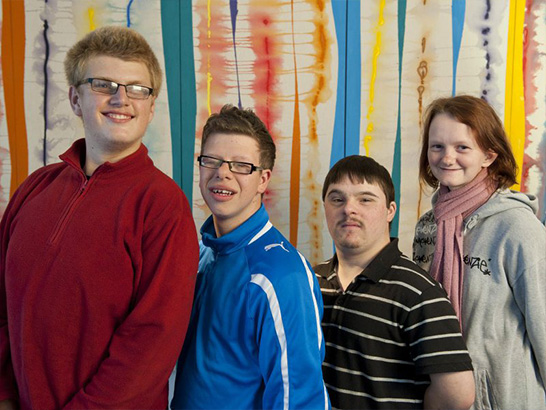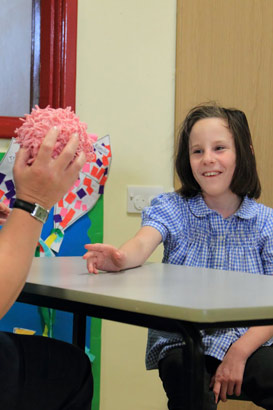
This package looks at the wider picture of collaboration to support learning. You may also wish to look at module 4.1 for other aspects covering this theme.
Transdisciplinary teams are the result of the evolution of the team approach. The transdisciplinary team model values the
knowledge and skill of team members. It is dependent on effective and frequent communication among members, and it promotes
efficiency in the delivery of educational or health care services. Members of the transdisciplinary team share knowledge,
skills, and responsibilities across traditional disciplinary boundaries in assessment and service planning. Transdisciplinary
teamwork involves a certain amount of boundary blurring between disciplines and implies cross-training and flexibility in
accomplishing tasks.
Dyer, 2003

Transdisciplinary working at its best is able to take away the elements of depersonalisation, incompatible targets, and
impossible scheduling of appointments with the transdisciplinary team (including the family) prioritising and rationalising
their support for the young person in a way that enhances their quality of life and that of their family.
CLDD report, 2011
Working in transdisciplinary teams has many advantages for the child, the family and all the professionals involved:
- Interlinking goals from different disciplines with a common aim;
- Working with shared goals;
- The setting of SMART targets;
- Focus on 'real skills that matter';
- Ability to show real achievement;
- Parents and carers are central.
Here is a list of who is involved
In your classroom:
- Learning Support;
- Peers.
In your school:
- Families / carers
- Teachers
- SENCO
- Family support worker
- Outreach support worker
- School nurse
- Educational psychologist
- CAMHS
- Psychotherapist / counsellor
- Speech and language therapist
- Physiotherapist
- Occupational therapist
- Paediatrician
In the home:
- Parents / carers;
- Siblings;
- Grandparents;
- Extended family;
- Family friends.
From other schools;
- Outreach worker
From external services
- Educational psychologist
- Social worker
- Psychotherapist
- Paediatrician
- CAMHS
- Alternative3 / work placements
- Voluntary agencies

Some children need the predictability of routine to engage without anxiety; others require the same approach used with
them consistently everyday to enable them to understand their environment and make a contribution. In developing personalised
and effective education programmes for children and young people, schools have recognised the need for consistency both at
home and at school and the value of home-school relationships.
Some families stress the importance of the staffing consistency. Without the same team of people working with the child every
day,
staff cannot learn the complexities of their health, learning and behavioural needs. This ultimately limits the child's progression.
There are professional development implications for collaborative working.

Carpenter, B., Egerton,J. Brooks,T., Cockbill,B., Fotheringham,J., & Rawson,H. (2011) The Complex Learning Difficulties and Disabilities Research Project: Developing pathways to personalised learning.
Final Report.'